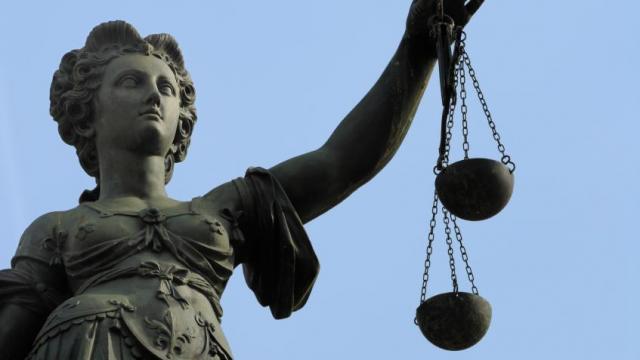
A law passed in Pittsburgh, Pennsylvania, back in 2010 helped established a novel idea: if people have a Bill of Rights on the individual level, what about a set of rights bridging the individual to her or his community? A right to water and clean air, a right to exist in a peaceful environment, a right to sustainable energy.
After all, when thousands of people gather to protest something -- fracking, say, in New York state -- it is because they see that the law, which favors corporate interests rather than voting constituents, is broken. So, to clarify what belongs in the people's domain, the public interest law firm Community Environmental Legal Defense Fund coined the term “Community Bill of Rights,” which sets standards at the municipal and county levels that privilege environmental and health concerns over corporate profit.
And they've already scored some legislative victories.
“The communities we're organizing in have come to the recognition that the state and federal governments are forcing things like fracking and pipelines into their communities, and communities don't have the right to self-govern, to determine if those things should come in,” says Mari Margil, associate director at CELDF. “They realize they don't have the legal authority to say no to something they perceive as a threat, whether to the natural environment, public health, or the local economy.”
Consider the gas drilling ban that passed in Pittsburgh in 2010, which was modeled on a CELDF proposed ordinance. By labeling the protections part of a Community Bill of Rights, “the light bulb clicked” for former Pittsburgh Councilman Doug Shields, who said it was important to move the conversation from municipal and planning jargon to something everyone could understand: that protecting one's health and environment is paramount to all other rights.
In the past, said Shields, advocates had used zoning restrictions to try to bar unwanted industrial use from the land. For example, a city could try to restrict how land was leased for its mineral rights. But those legal hurdles weren't enough. They also begged the question: “Do citizens have the rights or do corporations have the ultimate rights?” he asks.
But the Community Bill of Rights is not a law without risks. Federal rulings trump state rulings, and state rulings do the same to municipal laws. Just look to Jersey City, where a local ordinance banning a controversial natural gas pipeline was overturned by the Federal Energy Regulatory Commission.
Jersey City pointed to numerous pipeline explosions, environmental concerns, risks to future development, and the safety record of the pipeline's owner, Spectra Energy, which has received numerous fines for failing to properly inspect its pipelines. But FERC saw things differently, and the pipeline is currently under construction even as appeals linger in court.
Still, Shields is hopeful. Despite threats of a lawsuit over the Community Bill of Rights from the fracking industry, none of those cases have materialized.
A representative for the Marcellus Shale Coalition, a group that represents industry interests, did not return numerous phone calls for comment about the novel legislation.
And if the law is challenged, Shields says it could well strengthen public opinion nationally. “Let's see you win in court,” he said, challenging corporations' right to sue and take away “these basic rights.”
As Margil put it: “In every state and federal constitution, our governance comes from consent of the governed.”
So far, the communities where CELDF has found the most success are often in rural areas that are dependent on the surrounding environment.
An example is the group's success last month in Mora County, New Mexico, where the risks of natural gas extraction are more than just an abstract fear. Beset by oil and gas interests on all sides, New Mexico is dependent on these industries for 30 percent of its budget.
Yet Kathleen Dudley, the CELDF representative in the state and also a local farmer, said Mora County only had to look to the consequences of fracking in neighboring communities before it said no thanks. In fact, when Dudley held an educational workshop as part of her work for CELDF, people from counties where fracking and oil extraction were already underway attended to warn the residents of Mora.
“They said, 'Wake up, Mora, before it's too late. Don't let them turn the engines on,” said Dudley. “Industry is winning because [people] don't know how to empower themselves or their communities, and that's what CELDF offered us. They said we'll help you organize and assert your rights.”
To get the word out, CELDF holds what calls Democracy Schools, which are educational seminars that reframe the conversation and help engage citizens with techniques to fend off industry excess. The effort appears to be having some success. In March, CELDF helped Grafton, New Hampshire, narrowly pass a Community Bill of Rights, and Highland Township, Pennsylvania, did the same thing in January.
Last summer, residents in Spokane, Washington began an effort to institute their own Community Bill of Rights.
But the aim is more than just to change the law in certain pockets of the country, where a single unsympathetic court ruling could set a precedent that negates years of hard work. “It's got to be a people's movement,” says Margil, who likened the cause of environmental justice to a “Civil Rights movement of today.”
“Washington is not going to do anything until they're forced to do something,” she added. “We're focusing on the work we do because we understand pressure has to come out of communities. When we look at past and contemporary movements, they have to be driven upward, not top down.”
3 WAYS TO SHOW YOUR SUPPORT
- Log in to post comments















Comments
Charlie Kelly replied on
Community Bill of Rights
Forward any articles or reports on the Community Bill of Rights
Charlie Kelly replied on
This verification process is
This verification process is insane